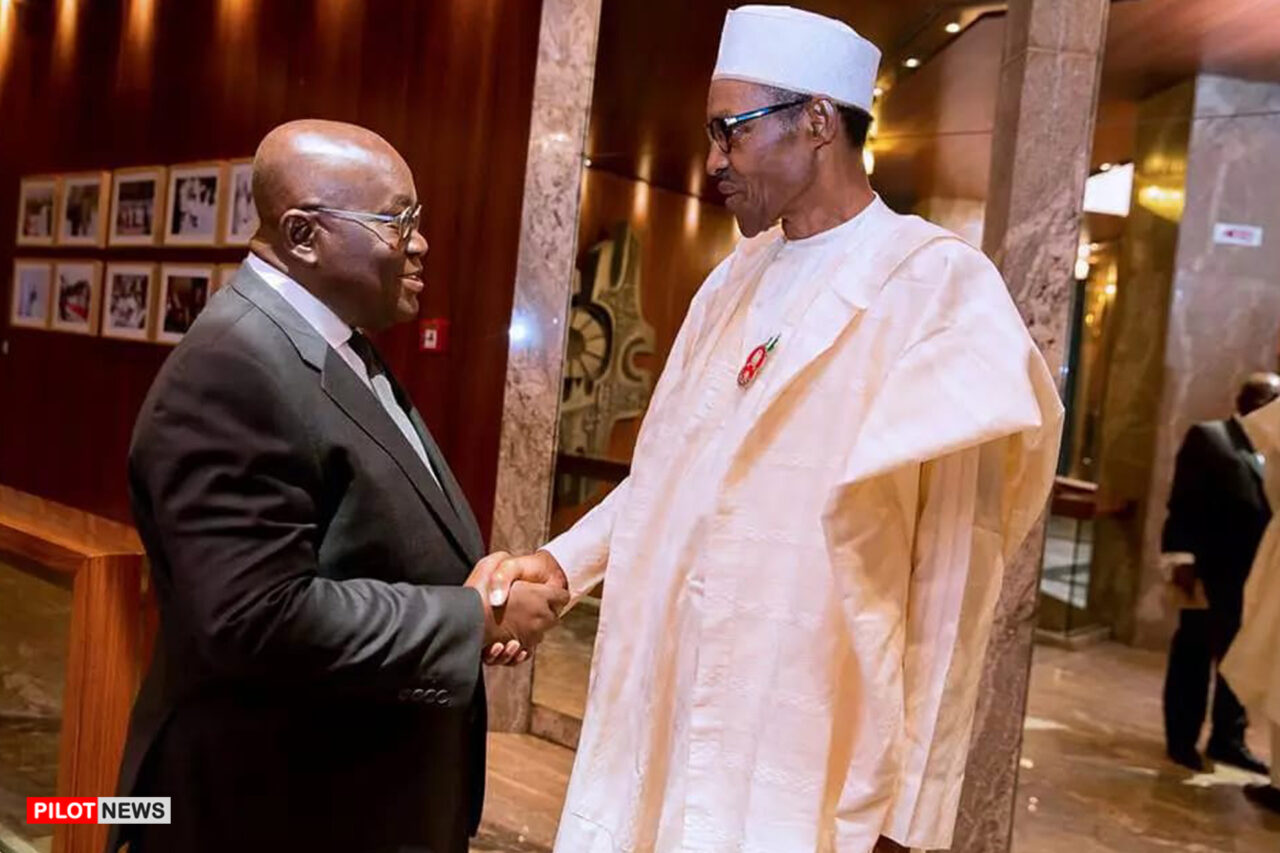The Progressive Ambassadors of Nigeria (PAN) has urged ECOWAS and the Federal Government to wade-in on the imposition of $1million trade-levy on Nigerian Traders in Ghana, by Ghanaian authorities.
This is contained in a statement issued by Emmanuel Ohiomokhare, PAN’s National Director of Media, on Sunday in Abuja.
The News Agency of Nigeria (NAN) reports that PAN is a non-governmental organisation of Nigerian traders in Ghana seeking to promote and protect the welfare of Nigerian citizens across the country and in the diaspora.
Ohiomokhare described the imposition of the levy on Nigerian traders there as, not only harassment on them but also a contravention of the ECOWAS protocol.
He expressed displeasure over the statement by the Ghana Minister of Foreign Affairs saying that Ghana implemented the law because Nigeria also violated ECOWAS protocol by closing her border.
According to him, the quest is that since 2007 when Ghana started closing Nigerian traders shops, till date, such actions were not occasioned by recent border closure.
“Did Nigeria violate ECOWAS protocol by taking steps to contain the cross-border insurgency, check to smuggle and address deliberate abuse of the provisions of ECOWAS Trade Liberalisation Scheme (ETLS) among others?
“Mindful of deep and conscious engagements with the Federal Ministry of Foreign Affairs, PAN calls for decisive and urgent actions by the federal government to find a permanent solution to this recurring decimal,’’ Ohiomokhare said.
He also appealed to the government to consider evacuating Nigerians who continued to face harassments and xenophobic attacks in Ghana, to avoid loss of lives and the attendant surprises.
“There is so much tension in Ghana now; many Nigerians living there no longer feel safe and several of those affected by recent closures are financially and economically stranded.
“ECOWAS must awake to its responsibilities when the opportunities are not exhausted.
“The continuous violation of ECOWAS protocol by Member State without corresponding sanctions, therefore, becomes clearer that Nigeria’s continued membership of ECOWAS is a total waste of time, energy and resources.’’
ELTS is a trading instrument by the Regional Economic Community administered by ECOWAS Commission through the Member States to encourage duty-free trade between ECOWAS countries.
The media director stated that it was inconsistent for the Ghanaian authorities to have constituted a task force to impose a $1million levy on lawful Nigerian Traders under the Ghana Investment Promotion Act (GIPA) 2013.
He further cited paragraphs in GIPA (865) reviewed and passed into law on Aug. 26, 2013, which limit foreigners from carrying out free trade in line with ECOWAS protocols.
“Under paragraph 28(2), a person who is not a citizen may engage in trading-enterprise, purchasing and selling of imported goods and services, not less than $1 million in cash or goods and services relevant to investments.
“Also, such a trader must employ, at least, 20 skilled Ghanaians,’’ he said.
According to him, although PAN does not have problems with the sovereign law of Ghana regarding foreigners, classifying Nigerians as foreigners in ECOWAS Member State was a clear violation of ECOWAS Free Movement Protocol.
He stated that such undermined ECOWAS regional integration objectives.
“Nigerian Traders, in the past 20 years, have been selected victims and political scapegoats at election cycles in Ghana in implementation of this Act.
“In keeping with the provision of the ECOWAS Free Movement Protocol, Nigerian government allowed Ghanaian citizens in Nigeria unfettered access into the local markets without any form of harassments, intimidation, limitations or discrimination.
“They are engaging freely, both in terms of retail trade and services, and all manner of menial, non-salaried activities in Nigeria.
“They enjoy government protection and live among the Nigerian citizenry across the country, but in Ghana, the reverse is the case,’’ he added.
- Naval Outpost Onitsha Donates Educational Materials to School in Odekpe - July 26, 2024
- Two weeks on, Soludo’s APGA is yet to Upturn Njoku - July 25, 2024
- Asaba Might Finally be gearing up to become the new Onitsha - July 19, 2024

